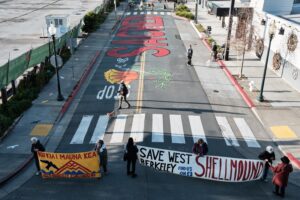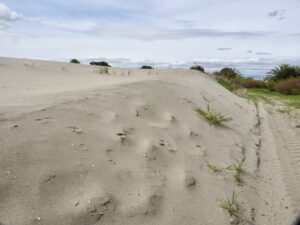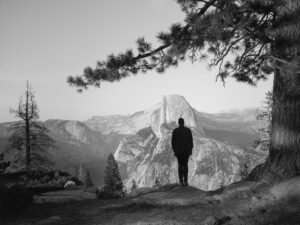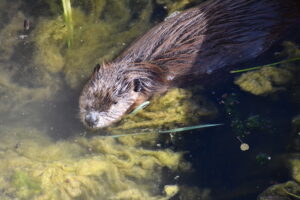As we prepared this article for the magazine in April, we were saddened to learn that environmental pioneer Ernest “Chick” Callenbach passed away at home in Berkeley with his family at his side. The author of 10 books and a longtime UC Press editor, Callenbach grew up in the small hamlet of Boalsberg, Pennsylvania, in the hills near Penn State University, where his father was a professor of poultry science. After graduating from the University of Chicago, Callenbach moved to California in 1955 with his first wife. He got a job at UC Press, where he worked until 1991, editing the Natural History Guide series and Film Quarterly, among other projects. Inspired by the first Earth Day in 1970, he began to study and write about environmental issues and human values and social habits, leading to the publication of his best-known work, Ecotopia, in 1975. This classic utopian novel helped frame and inspire the growing interest in appropriate technology, sustainability, and green lifestyles. On a sunny afternoon in October 2011, we sat down to talk over tea in his living room in North Berkeley.
DK: You’ve made the Bay Area home for decades. When and how did you get out here?
CC: I came out here to live in 1955, but I actually first visited when I was only 17. It really all started with a book: When I was in the eighth grade, I read Storm by George R. Stewart and this led me to being fascinated with the Central Coast of California, where Storm takes place. When I was 17, I was working a summer job in Los Angeles, and I realized that I could call in sick to my job and get Friday off and get on the bus up to the Bay Area to visit with Stewart, who was a professor at UC Berkeley. I’d written him some fan letters and he was willing to have me come for a visit. So I caught the overnight bus and my very first memory of the Bay Area is coming through the Livermore hills at dawn on what we now call I-580 on this Greyhound, and those curved, wonderfully sensual hills just blew my mind. I was still half asleep from the bus ride, and I thought, “Are these really hills?” It was July so they were nice and brown. I couldn’t believe that any landscape could actually look like that.
When I got out and walked around, it was one of those Bay Area days when the air is cool enough to be comfortable and yet not really cold, and it feels like the air of paradise, just what we were meant to live in. This was a place I could really feel at home, a place to put down roots and settle down. Some years later, after I’d gotten married and we wanted to settle down someplace other than New York or Chicago, I persuaded my then-wife to come out here. I’ve been here ever since. It really did feel like home, that’s the weird thing, and the air is still very important. “Ecotopia,” if you go back to the Greek root, means home place. I didn’t understand that until I was about to send the book off to the printer–I thought it just meant ecological utopia, but decided to look it up and was glad I did!
DK: What it was like growing up in the Penn-sylvania countryside?
CC: It was really part of Appalachia, and I grew up among subsistence farmer hillbilly kids. Everybody was poor, but there was a strong sense of community and that had a lasting impact on me. But it was very boring; it was deep country and people were profoundly Republican. They voted Republican in the depths of the New Deal when they needed help more than anyone else, but they all hated Roosevelt. So I was not exactly surrounded by intellectual companions.
DK: Can you explain the derivation of your adopted name “Chick”?
CC: My father was a professor of chicken-raising, and I was his first hatched! Some grad student remarked on this and the name stuck. My family runs to crazy nicknames. Chick and Ernest evens it out, with one serious and one non-serious name.
DK: How has living in the Bay Area for half a century motivated or inspired your work, writing, and life?
CC: There is some kind of infernal openness and excitement about the Bay Area that I have never understood. When I arrived, you had a strong sense that things were going on here independently of the nerve centers of New York and Washington, D.C. You felt you were part of something that had a kind of independent spirit and was going its own way and the rest of the country wasn’t paying much attention and that was just fine. As years went by, there grew a great openness to initiatives in literature, music, art, design, politics, and a lot of other things. It’s no accident that Silicon Valley is here. We have this large community of very smart and daring people doing astonishing things. As time goes by I think that entrepreneurial spirit will make itself felt on the green side of life. It already has, with the bulk of venture capital going into new energy technology from here. We’re lucky to have a lot of filthy-rich people willing to put money into some pretty chancy things.
DK: What are some of your favorite outdoor spots in the Bay Area?
CC: All the places I like returning to are wallowing in water. One of my favorite places for a walk is Cesar Chavez Park in Berkeley. When I first came here it was the site of the dump. I use to go down there and throw stuff in [the dump] and salvage other things. But now it’s a nice stroll for people like me who don’t have a lot of strength. I’m also very fond of the outer beach in Bolinas where the reef is off to your left and the beach runs north. I set one of the scenes in Ecotopia Emerging out there. I like that spot because it sticks out into the Pacific in such a brave and wonderful way. It’s thrilling to be there.
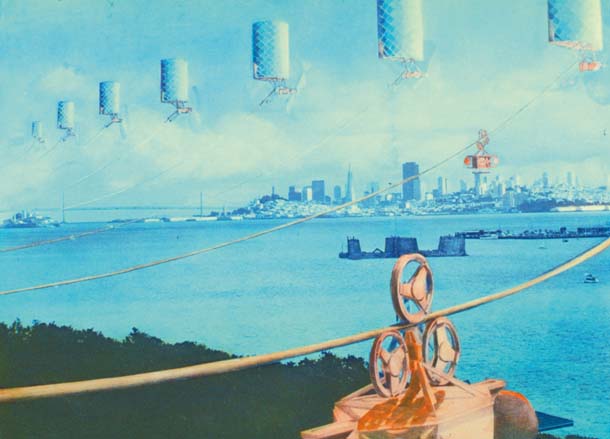
DK: Why do you suppose so very many environmental consciousness movements, ideas, and institutions have taken root here in the Bay Area?
CC: That’s a mystery, but part of it has to do with the Bay, the beating ecological heart around which all the other organs of the Bay Area have their place. You can’t live here without being conscious of the Bay, maybe fearful for the Bay in various ways. Then you have the surrounding, easy-to-access wild areas, not only the East Bay regional parks, which are an astonishing achievement started in the depths of the Depression, but also the wildlands in Marin, on the San Francisco Peninsula, and down toward Santa Cruz.
There are extensive areas insulated from development and that’s part of your consciousness if you live here. Even though we have just over 7 million people living here, twice the number as when I arrived, you still have a sense you are close to natural processes. Another lucky factor is due to historical accidents, such as John Muir settling here. Just our luck! Dave Brower was born and spent his life in Berkeley. There’s been a continual outpouring of people who care. I look to the work of the Greenbelt Alliance or any of these organizations that are doggedly devoted to preserving things and wonder, where do they get their energy, persistence, tenacity from? How do they raise the money? It is just astonishing! I am in awe of these people.
DK: Finally, as you’ve made reference to it, what are some of the lessons learned as a consequence of your health challenges?
CC: One of the first realizations I had when I was diagnosed with lung cancer is that one of these days something is going to get you. I didn’t feel any bitterness; that’s the really weird thing about it. You know, sure, there are things I would like to do that I will not be able to do, particularly centered around my darling wife Christine and our life together. But in the end, and I suppose it is a green thing to say, we are all re-cyclable. Gary Snyder put it another way when he wrote that we are all edible, which is literally true.
I’ve been one of the lucky ones. I have lived a long, healthy life. I come out of a Protestant ethic, and I feel like I’ve carried my share of the load. I don’t have any new writing projects except an “epistle to the Ecotopians” [see bit.ly/Jrqxwo+], some words of advice and comfort as to how are people going to get through hard times. The old idea that we are like nature, red in tooth and claw, is simply wrong. We are astonishingly cooperative. If we are encouraged at all, human beings are a pretty OK species.


